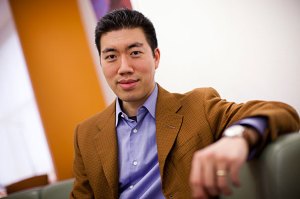Tag: David Liu
-
Science & Tech
Drug delivery system offers hope for treating genetic diseases
A team of researchers has developed a new drug delivery system that was able to edit genes associated with high cholesterol and to partially restore vision in mice.
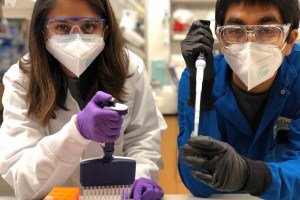
-
Science & Tech
New gene-editing technique shows promise against sickle cell disease
Scientists at Harvard and the Broad Institute have demonstrated that it is possible to treat sickle cell disease in mice using a new gene-editing technique.
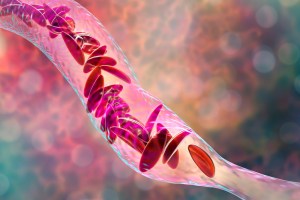
-
Science & Tech
A ‘miracle poison’ for novel therapeutics
Researchers prove they can engineer proteins to find new targets with high selectivity, a critical advance toward potential new treatments to help neuroregeneration, cytokine storm.
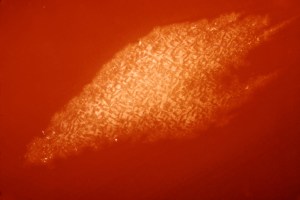
-
Science & Tech
Innovative tool offers hope for children with rapid-aging disease
Several hundred children worldwide live with progeria, a deadly premature aging disease.
-
Science & Tech
A promise to a friend
Wei Hsi “Ariel” Yeh dedicated her research in chemistry to solving some of the vast genetic mysteries behind hearing loss.

-
Science & Tech
A crisper CRISPR
Fewer off-target edits and greater targeting scope bring gene editing technology closer to treating human diseases.
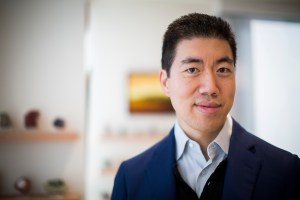
-
Health
A step forward in DNA base editing
Scientists at Harvard University and the Broad Institute have developed a new class of DNA base editor that can repair the type of mutations that account for half of human disease-associated point mutations. These single-letter mutations are associated with disorders ranging from genetic blindness to sickle-cell anemia to metabolic disorders to cystic fibrosis.
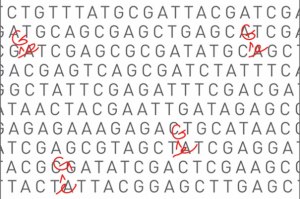
-
Health
New weapons against agricultural pests
Using phage-assisted continuous evolution (PACE) technology developed by Harvard professor David Liu and his co-workers, a team of researchers has evolved new forms of a natural insecticidal protein called “Bt toxin,” which can be used to help control Bt toxin resistance in insects.

-
Health
Improved accuracy in genome editing
A team of scientists has engineered a form of the genome-editing protein Cas9 that can be controlled by a small molecule and offers improved DNA specificity.

-
Health
Toward genetic editing
Led by David Liu, professor of chemistry and chemical biology, a team of Harvard researchers developed a system that uses commercially available molecules called cationic lipids to deliver genome-editing proteins into cells.
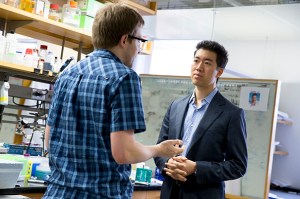
-
Health
Strategy for diabetes treatment
Harvard scientists have discovered a compound that inhibits insulin-degrading enzyme from breaking down insulin in the body.
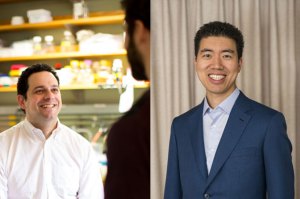
-
Science & Tech
Negative plus
Led by Professor David Liu, a team of researchers has developed a technique to continuously evolve biomolecules that uses negative selection — the ability to drive evolution away from certain traits — to create molecules with dramatically altered properties.
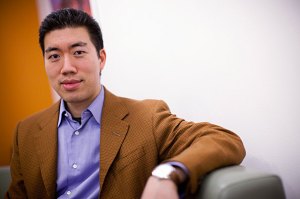
-
Health
A foundation for future research
Harvard researchers recently developed the most detailed “specificity profile” for Cas9 — a “machine” made of protein and RNA that can be programmed to target specific DNA sequences and to precisely cut, paste, and turn on or turn off genes. Future researchers will use the data when developing genetic tools and therapies.
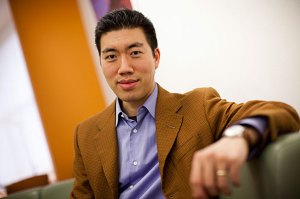
-
Nation & World
Your own news platform
The information revolution seemed to hit another high gear last week in Boston, leaving authorities on information technology pondering the ramifications.

-
Science & Tech
Evolutionary oomph
Scientists may soon be able to turn to one of the most powerful forces in biology — evolution — to help in their quest to develop new synthetic polymers.
